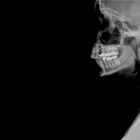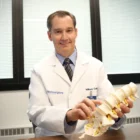If you are dealing with facial pain from atypical trigeminal neuralgia, then you understand how the symptoms can make enjoying your daily life difficult. Symptoms can include a dull ache on the side of the face, jaw or teeth, hypersensitivity to touch and episodes of sharp pain shooting through the face. Atypical trigeminal neuralgia symptoms, or TN-2, can make work, relaxation and family time very difficult to fully enjoy.
Facial pain and its associated symptoms can limit all aspects of your life. That’s why you owe it to yourself to get the proper diagnosis and treatment for your condition. Dealing with atypical trigeminal neuralgia requires that you visit your doctor right away to get started on the right road to recovery.
By understanding the symptoms of atypical trigeminal neuralgia and how they differ from the classic presentation of trigeminal neuralgia, you can be sure to get an accurate diagnosis of your condition and start on the best treatment for you.
What is Atypical Trigeminal Neuralgia?
Atypical trigeminal neuralgia is an irritation of your 5th cranial nerve. Cranial nerves are nerves that arise from your brain and travel to and from the body. They differ from peripheral nerves in that they do not originate from your spinal cord, but rather from your brainstem itself.
The 5th cranial nerve, called the trigeminal nerve, communicates information about your facial sensation to your brain. It travels from your temple, eye, and jaw back to your brainstem. You have two trigeminal nerves- one on each side of your face.
Whenever the trigeminal nerve gets irritated, it may cause abnormal sensations or pain in your face and jaw, resulting in a condition called trigeminal neuralgia. The symptoms may come on gradually, and you may experience episodes of pain followed by no symptoms whatsoever.
The causes of trigeminal neuralgia are largely unknown. In some cases, the cause comes from irritation of the trigeminal nerve by a neighboring blood vessel. When a normal blood vessel near your trigeminal nerve rubs against the base of the nerve, pain may be felt. On the other hand, some people with the blood vessel near their trigeminal neuralgia feel no abnormal symptoms whatsoever.
Atypical trigeminal neuralgia is a type of trigeminal neuralgia that is identified by the constancy of symptoms. Patients with atypical trigeminal neuralgia experience episodes of sharp facial pain, but they may also feel a dull, constant ache as their baseline during normal functional activities.
There are various triggers that are associated with atypical trigeminal neuralgia. These may include:
- Brushing lightly against your face
- Brushing your teeth
- Excessive chewing of foods
- Putting on makeup
- Shaving
- Smiling
Additionally, there may be other triggers for atypical trigeminal neuralgia that are specific to your condition, so visiting your doctor to discuss triggers that are modifiable may be an important component of your treatment strategy.
Are you out of options
to eliminate your pain?
Atypical Trigeminal Neuralgia Symptoms
Symptoms of atypical trigeminal neuralgia can be confusing. They may mimic other conditions such as sinus infections or dental problems. The symptoms of atypical trigeminal neuralgia include:
- A constant, chronic dull ache or boring pain on one side of your face and jaw
- Abnormal sensations of numbness or tingling around your eye, cheek or jaw
- Constant dull, aching sensations in your jaw or teeth
- Episodes of sharp electric pains shooting through your face, eye or jaw
- Hypersensitivity to light touch in your face
- Spasm of facial muscles
The symptoms of atypical trigeminal neuralgia are located in the same area as the classical presentation of the condition. The hallmark of the atypical form of the condition that makes it different from the classical form is the constant symptoms that are the baseline from where the sharp, shooting pains arise.
Atypical Trigeminal Neuralgia Diagnosis
One of the difficult aspects of treating atypical trigeminal neuralgia is getting an accurate diagnosis of the condition. If you are experiencing any facial pain or abnormal sensation, visit your doctor right away. He or she may refer you to a facial pain specialist who can make an accurate diagnosis of atypical trigeminal neuralgia.
Although there are no specific diagnostic tests for atypical trigeminal neuralgia, your doctor may recommend you get an MRI or CT scan of your brain to rule out any other problems that may be causing your facial pain. Sometimes, people with multiple sclerosis or a tumor near the trigeminal nerve have facial pain symptoms.
Proper diagnosis of atypical trigeminal neuralgia includes understanding a few different variables that are consistent with the condition. Atypical trigeminal neuralgia symptoms help your doctor make the diagnosis. These may include:
- Location of pain and symptoms. Atypical trigeminal neuralgia symptoms are located in areas specific to the trigeminal nerve.
- Type of pain. The pain from atypical trigeminal neuralgia is constantly there in varying degrees. The baseline pain is usually a dull ache, and episodes of sharp, electric shocks of pain are frequently experienced.
- Triggers of your pain. Triggers of atypical trigeminal neuralgia typically help your doctor fully diagnose your condition.
Once your doctor makes an accurate diagnosis of TN-2, you can begin focusing on finding the best facial pain center for treatment. While many people receive relief from medication for atypical trigeminal neuralgia, many must consult a neurosurgeon who is a facial pain specialist for a surgical consult to definitively treat the condition.
Atypical trigeminal neuralgia symptoms can be difficult to understand, and the condition is difficult to properly diagnose and treat. By knowing atypical trigeminal neuralgia symptoms and how they behave, you can be sure to find the best healthcare professional to treat your condition and help you return to your previous, pain free lifestyle.

About Neurosurgeons of NJ
Introducing our team of board certified physicians dedicated to bringing you the latest developments and treatment options. We strive to produce the most clarified & clear content to help you make informed decisions on your medical journey. The road to feeling like your true self should not feel lonely- Let us help you. Please call us to schedule a consultation and speak to one of your team members.






